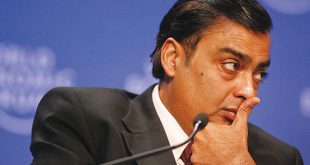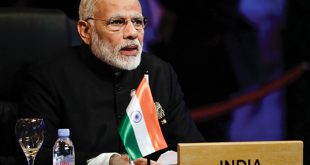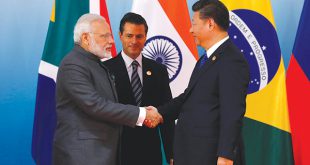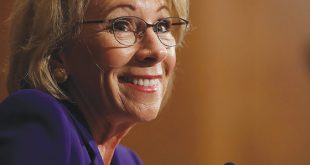Most Americans likely think that our trade policies have been largely the same since the Republic’s earliest days. The assumptions are that we’re free traders now and always have been; also, that we’ve long been a manufacturing power, boosting exports. If we sometimes lose in global competition, the main cause is that other countries don’t play fair. The truth is ...
Read More »Opinion
Mukesh Ambani’s softly, softly online approach may outsmart Amazon
Amazon.com Inc. had better watch out. The $200 billion e-commerce market Morgan Stanley is forecasting for India by 2027 just got a new contender — with a very different plan. Energy tycoon Mukesh Ambani has already disrupted the country’s telecom industry. His next big foray may be online retail. But India’s richest man may not create a marketplace of his ...
Read More »Four years on campus might be one too many
The basic cause of America’s student-loan crisis is no mystery: College tuition and fees continue to soar while the earnings of recent graduates remain flat. It shouldn’t be surprising that there’s also a straightforward way to lower the cost of a college degree: Reduce the amount of time it takes to earn one. The US’s four-year bachelor’s degree is based ...
Read More »Bitcoin has an unusual link with volatility
Cryptoassets are showing the signs of a bubble. Market capitalization is $222 billion, 16 times as much as a year ago, with no significant change in tangible economic value. The virtual currencies elicit investment excitement and breathless news coverage; sober analysis treating both technical issues and economic fundamentals is rarer. There is incessant cheerleading by people who own cryptoassets, manufacture ...
Read More »Does India deserve latest bout of hype? Yes and no
Moody’s recent decision to raise its rating of India’s sovereign bonds a notch, from Baa3 to Baa2, could elicit one of two reactions. On the one hand, a fair observer could feel that the decision was way overdue. And, on the other hand, an equally fair observer could raise an eyebrow at the timing. Actually, it’s possible to feel both ...
Read More »Toshiba may be able to have its chips and eat them, too
Toshiba Corp. looks to be selling everything. Except its chip business. If ever there was a sign the embattled Japanese firm doesn’t expect — or dare we say it, want — to offload its prized unit to Bain Capital LP and friends, it’s the garage sale that was suddenly launched on Sunday. Toshiba announced plans to sell 600 billion yen ...
Read More »The ‘big five’ could destroy the tech ecosystem
How big can the largest tech companies get? How completely can they come to dominate the economy? The “big five” — Apple, Alphabet, Microsoft, Facebook and Amazon — now have a combined valuation of over $3.3 trillion, and make up more than 40 percent of the value of the Nasdaq 100 index. As the digital economy continues to grow faster ...
Read More »Free-market failure has been greatly exaggerated
Harvard economist Dani Rodrik has a long and thoughtful essay about the shortcomings of neoliberalism — the economic programme of free markets and free trade. He writes: Economists’ contributions to public debate are often biased in one direction, in favor of more trade, more finance, and less government. That is why economists have developed a reputation as cheerleaders for neoliberalism, ...
Read More »Killing Korea’s inheritance tax would be a smarter move
South Korea’s corporate watchdog is going after charities that the nation’s family dynasties may have been using to skirt power-diluting inheritance taxes and maintain control, according to a Bloomberg News report recently. That’s a smart move, but an incomplete one. For the crackdown on the $12 billion in foundation money held by chaebol including Samsung Group and Hyundai Motor Group ...
Read More »A raw deal from Betsy DeVos
Under President Barack Obama, the government took steps to impose greater accountability on the industry and protect students from predatory schools. The policy is both just and cost-effective: For-profit schools saddle students with more debt and lead to higher default rates than traditional schools. In 2016, the department issued the gainful-employment rule, which requires any educational program receiving federal student ...
Read More » The Gulf Time Newspaper One of the finest business newspapers in the UAE brought to you by our professional writers and editors.
The Gulf Time Newspaper One of the finest business newspapers in the UAE brought to you by our professional writers and editors.







